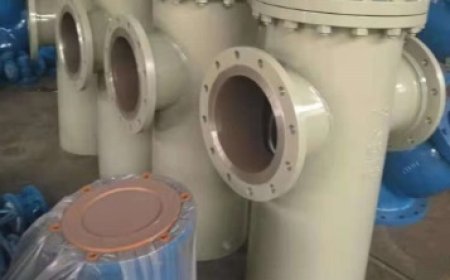How Innovation in Life Sciences Is Reshaping the Future of Healthcare
Life sciences innovation is transforming healthcare with AI, genomics, telehealth, and personalized medicine. Ecosystems like Masdar City accelerate biotech breakthroughs, improving patient outcomes, access, and care delivery worldwide.
Innovation in life sciences is rapidly redefining the future of healthcare. From AI-driven diagnostics and personalized treatments to advanced biotech research and integrated health systems, life sciences now sit at the center of real-time healthcare solutions, improving outcomes, reducing costs, and accelerating access to care.
The shift is clear: healthcare is evolving from a reactive, one-size-fits-all model to proactive, precise, and interconnected systems. This transformation is made possible by the continuous evolution of life sciences and the ecosystems that enable them. Purpose-built innovation hubs like Masdar City are playing an instrumental role in shaping this future.
Rethinking Healthcare Through Innovation
At its foundation, innovation in life sciences is about pushing boundaries and translating discovery into real-world impact. It brings together disciplines, digitizes legacy practices, and moves research out of labs and into scalable applications. Today, startups, researchers, healthcare providers, and governments are working more closely to address urgent global health challengesfrom chronic disease to pandemic resilience.
Recent breakthroughs include:
-
Genomic sequencing enables treatments tailored to individual DNA profiles.
-
AI and machine learning that detect disease patterns and predict risks with high precision.
-
3D bioprinting and tissue engineering that support breakthroughs in regenerative medicine.
-
Telehealth platforms and decentralized clinical trials that expand access and enhance patient engagement.
These technologies are not simply improving carethey are fundamentally transforming how, where, and when care happens.
From Generalized to Personalized: A Shift in Medical Paradigms
One of the most powerful outcomes of life sciences innovation is the move toward personalized, predictive, and preventive care. By analyzing genetic, lifestyle, and environmental data, healthcare providers can now tailor interventions to each patients unique profile.
Wearables, connected diagnostics, and AI-driven tools are driving this change. In oncology, for example, tumor biomarkers help determine the most effective therapies. In cardiology, real-time data helps predict and prevent adverse events before they occur.
This approach shifts the healthcare model from treatment to anticipation, offering care that is smarter, faster, and more targeted.
Enabling Innovation Through Purpose-Built Ecosystems
Scientific breakthroughs require more than good ideasthey need environments that can turn research into results. Life sciences ecosystems thrive when they combine infrastructure, talent, funding, and policy alignment.
Masdar City in Abu Dhabi has emerged as one such environment.
Home to a growing Life Sciences Innovation Hub, Masdar City offers a complete ecosystem to support the development, testing, and scaling of health technologies. The district welcomes startups, established firms, and research institutions working across medicine, biotech, and health data.
What Sets Masdar City Apart?
-
Strategic Global Location
Situated in Abu Dhabi, Masdar City connects East and West. It offers proximity to global markets, government regulators, academic institutions, and healthcare providers, positioning it as a gateway for health innovation. -
Smart Infrastructure for Science
The city is built on sustainable design and adaptability. Laboratories, offices, and test spaces are modular and ready for a variety of venturesfrom early-stage R&D to multinational projects. -
Access to Talent and Research Partners
Through partnerships with institutions like Khalifa University, Masdar City supports knowledge transfer and workforce development. The environment fosters constant collaboration between academia, healthcare, and business. -
Favorable Regulatory Support
The free zone offers streamlined licensing, IP protection, and investor-friendly policies, removing barriers to innovation and accelerating go-to-market strategies.
From Discovery to Delivery: The Real-World Impact
Innovation only delivers value when it reaches people. Thats why the focus in Masdar City is on translational sciencebringing research to the point of care.
Startups and global companies alike are piloting devices, launching digital health platforms, conducting early-phase trials, and tailoring new solutions for regional health needs. These innovations are designed not just for the UAE but for global deployment, addressing challenges like infectious diseases, chronic conditions, and health system efficiency.
Collaboration as the Catalyst
No innovation in life sciences happens in isolation. The next generation of healthcare depends on interdisciplinary collaboration, open data ecosystems, and public-private partnerships.
Masdar City encourages this through its inclusive, integrated environment, bringing together researchers, engineers, clinicians, investors, and policymakers under one framework. This accelerates time-to-impact and ensures breakthroughs are implemented where they are needed most.
Conclusion: Building Healthier Futures Starts Now
Innovation in life sciences is no longer optionalit is essential. As health challenges become more complex, the demand for agile, human-centered, data-driven healthcare is rising.
By investing in ecosystems like Masdar City, the global healthcare community is laying the foundation for a smarter, more responsive, and more inclusive future. The infrastructure, policies, and partnerships being built today will define tomorrows healthcare outcomes.
We are not just reshaping treatmentwe are reimagining health itself.



































![Play99 Login & Registration Guide for Indian Users [2025 Update]](https://www.atlantanewsplus.com/uploads/images/202507/image_140x98_6870c1df7bfcd.jpg)